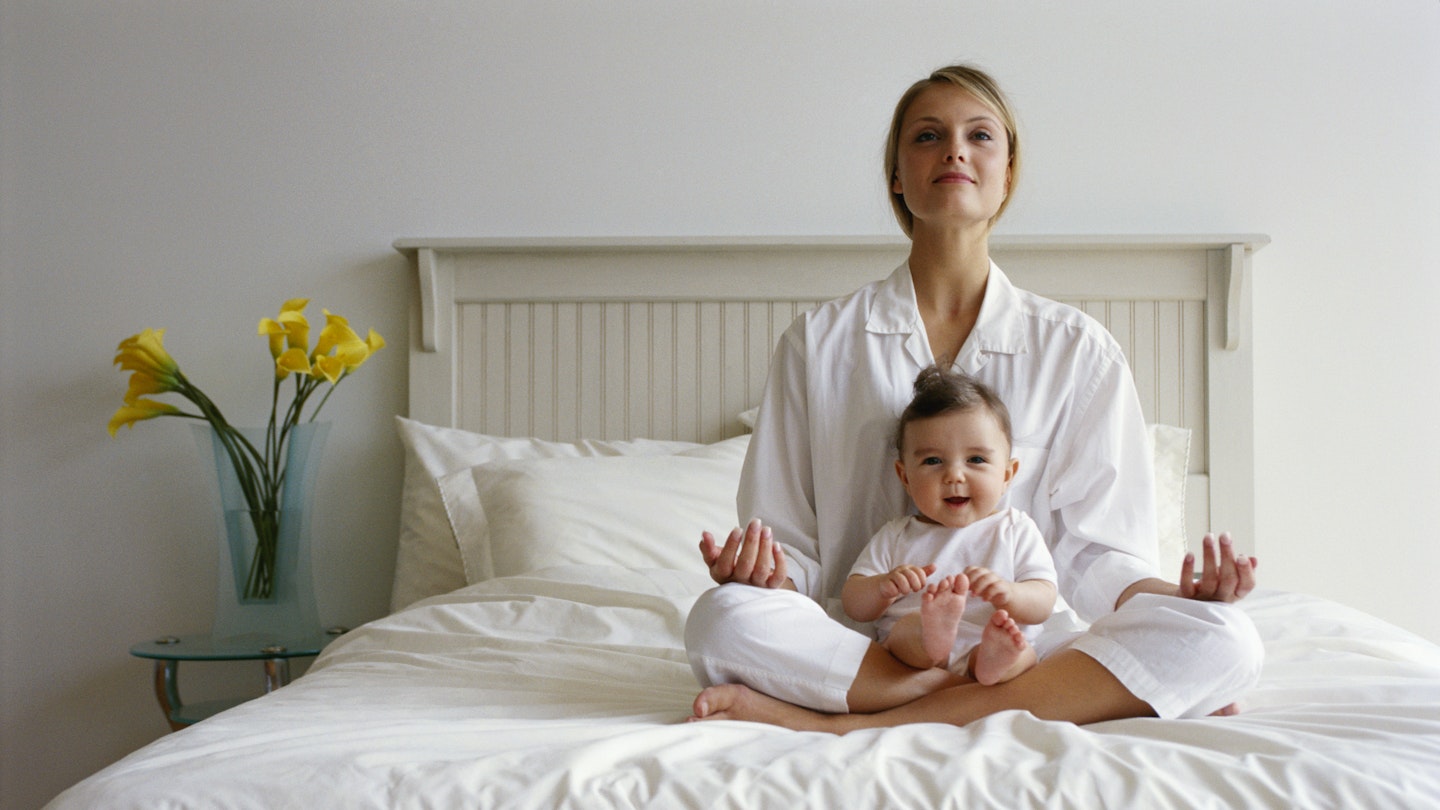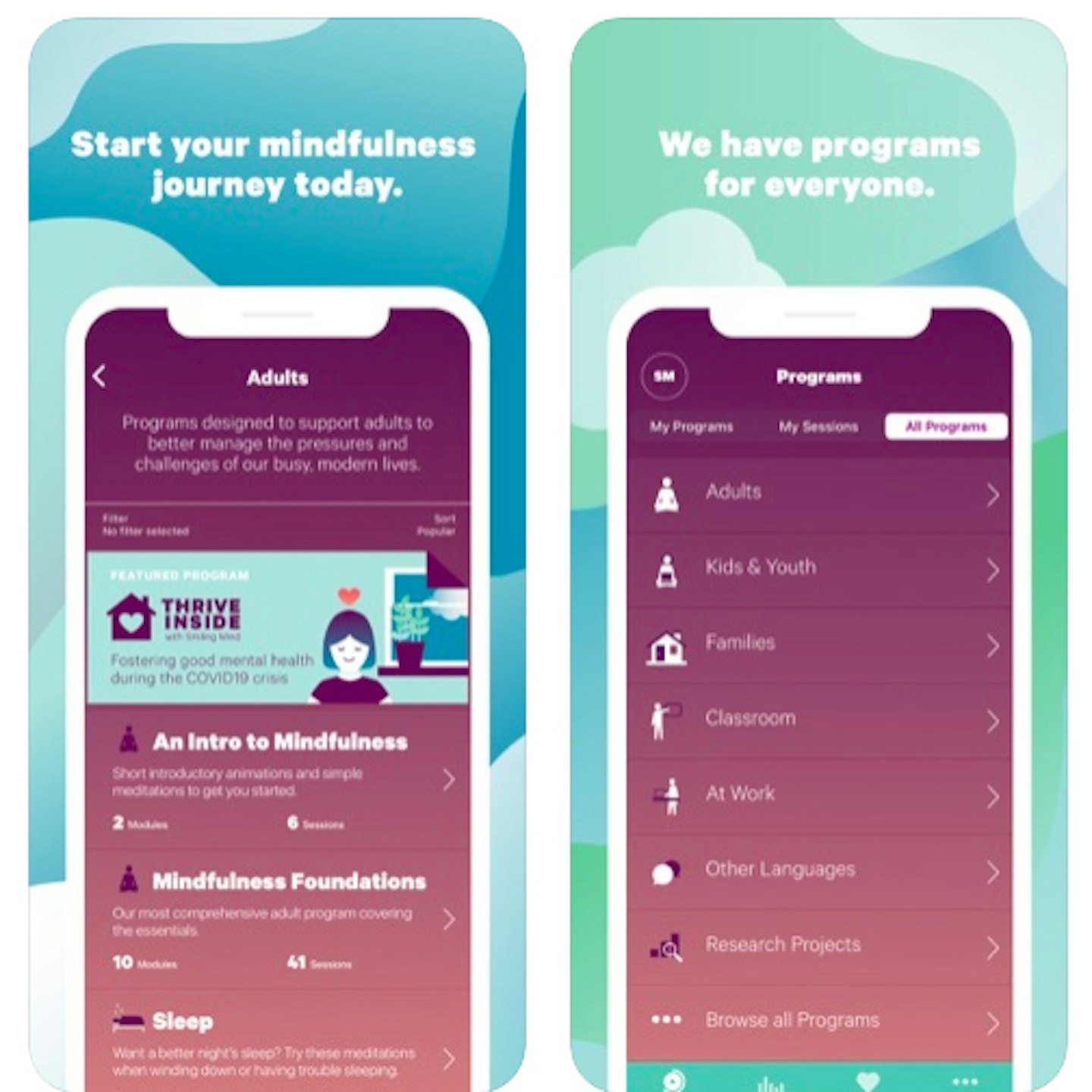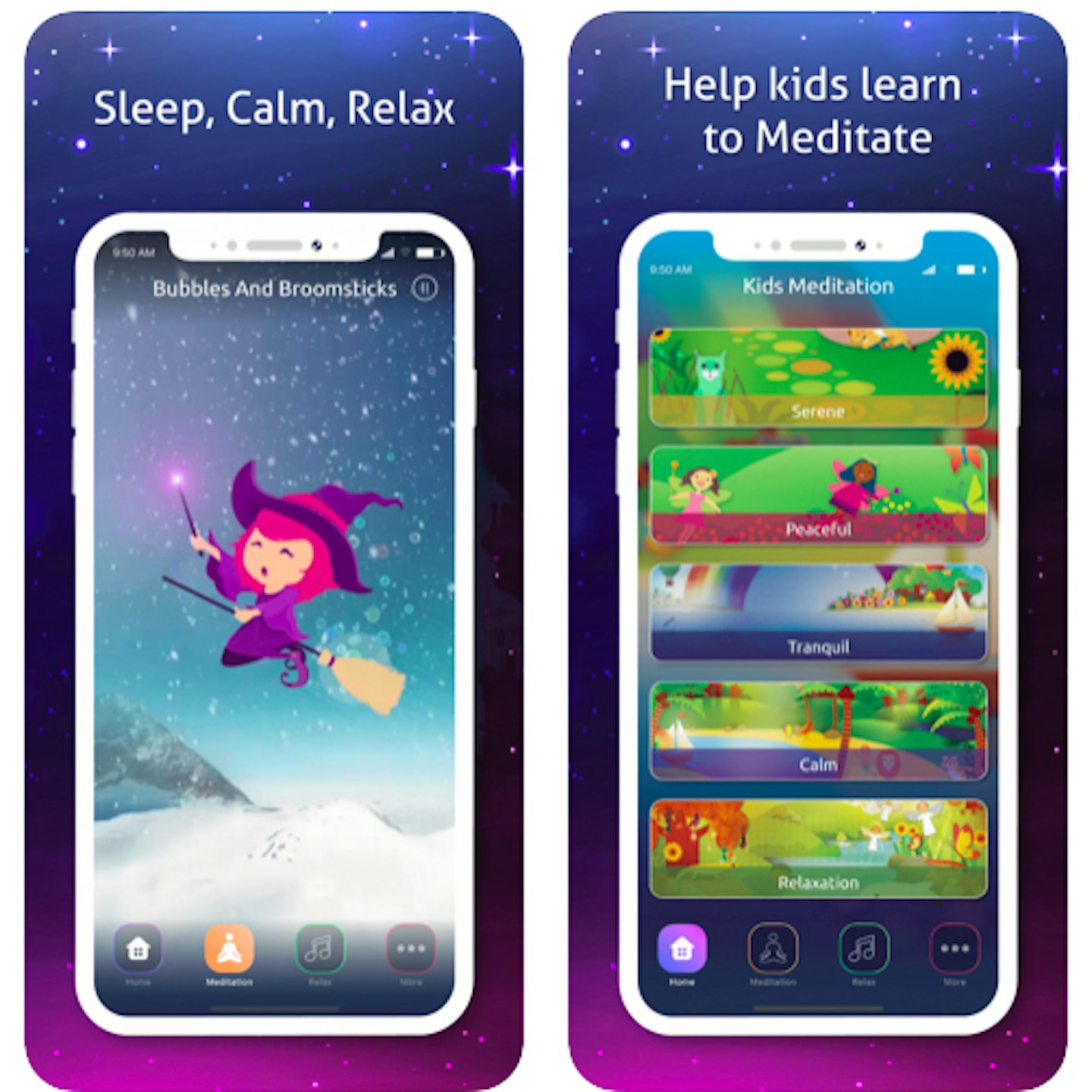In their happiest moments, your baby may well resemble a smiling Buddha, but could they really practice mindfulness? As curious as it sounds, research suggests that the answer is yes, and that introducing a little zen and mindfulness into your child's life now could actually have positive effects for years to come.
It has been 20 years since Marneta Viegas first turned familiar fairy tales into meditations for tots, and her company, Relax Kids, is now renowned for its CDs, books and classes. ‘Just last month, I was introduced to an 18-year-old who’d used our techniques and he told me he still uses them now,’ she says. ‘Another little one is now a well-known West End actress, and she used them to get through drama school and auditions.’ In today’s fast-moving world, Marneta points out, emotional awareness, resilience, and focus are vital life skills. And that’s where mindfulness comes in. The NHS, which has long prescribed mindfulness as a means to boost mental health, describes it as: ‘Paying more attention to the present moment – to your own thoughts and feelings, and to the world around you.’
Getting started
Sounds sensible, right? But the question remains: can your little bundle of chaos really achieve this blissed-out state? ‘Mindfulness is active, it requires energy and focus,’ says Marneta. ‘What we do with small children is more natural. It’s about creating the conditions that encourage relaxation and laying the foundations for more active mindfulness practice when they get older.’ Do so at an early stage, she suggests, and they’ll never forget.
‘Typical baby classes are all about stimulation, lots of songs, lots of colours and movement,’ says Marneta. Baby Mindful classes are quite the opposite, making use of techniques like gentle stretching and baby massage to promote a calming atmosphere, not only for your little one, but also for you. Because they may be too small and too squirmy to sit in the lotus position, you can provide a lot of the zen for them.
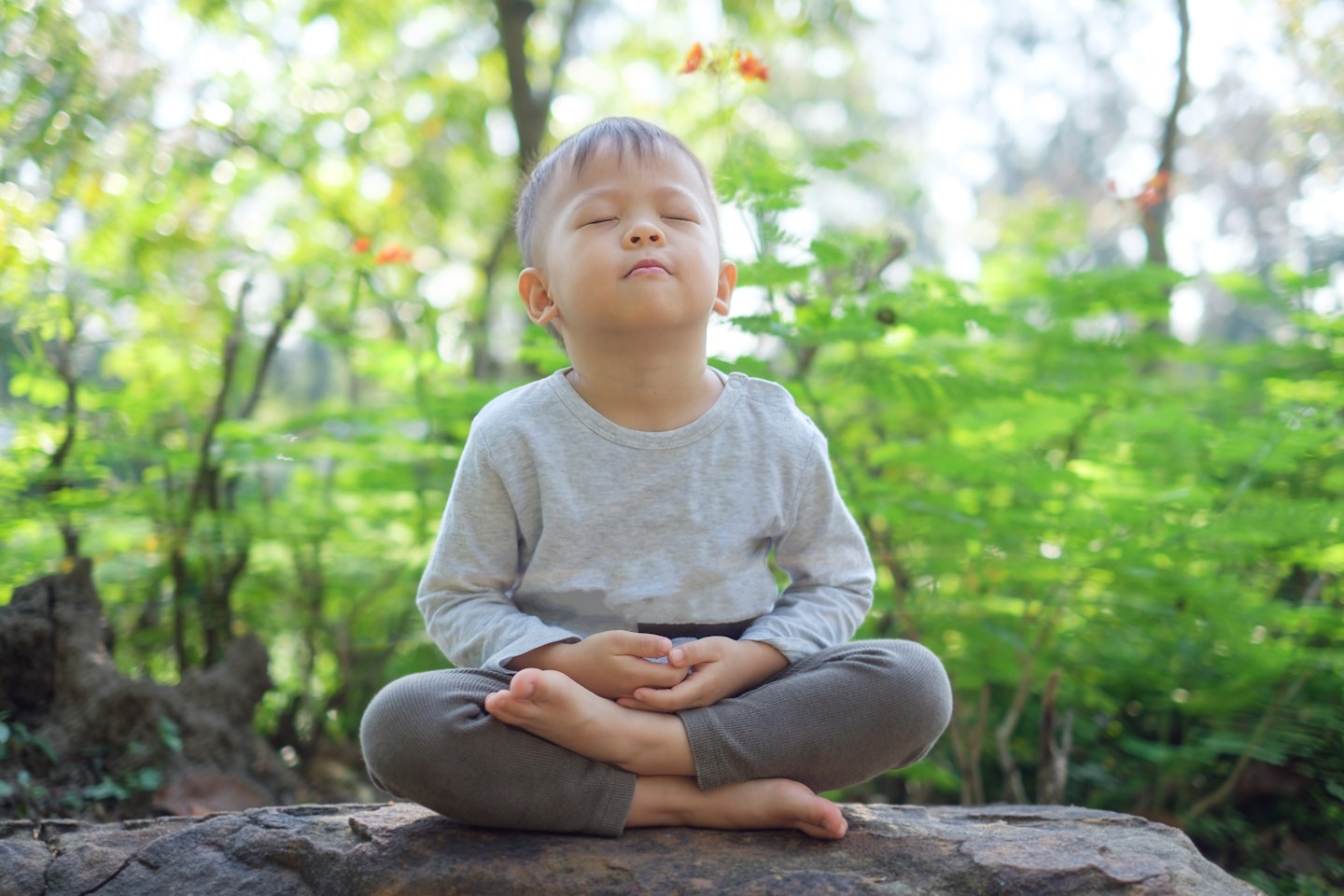
Reflect the calm
‘Babies and children mirror our own feelings,’ says Marneta. ‘So, if we can learn to model calm, relaxed behaviour, it really helps them.’ This doesn’t mean you have to be cool, calm and collected all of the time. Being a mum sometimes means being on an emotional rollercoaster, and that’s part of both the excitement and the fun. Still, for your sake and theirs, Marneta suggests learning some practical techniques. ‘It only needs a few minutes of your day. Feel the softening of the mind, the opening of the heart. Children will naturally start to mirror that back,’ she says.
Marneta’s classes include affirmations, in which the mums all choose and repeat their own positive mantra. It might be something like: "I am everything my baby needs" or "My baby and I are healthy, happy and strong." ‘They also practice lying down, breathing with your baby on your tummy. It’s creative, simple and pressure-free,’ says Marneta.
Marneta is keen to bust another myth: ‘People might think you’ve got to have a quiet baby to be mindful, but that’s absolutely not the case,’ she says. ‘If your baby’s crying, that’s absolutely fine. It’s about sitting with, acknowledging and accepting how you’re feeling at this moment, and how your baby is too. Then modelling your breathing, slowing your breathing down.’
Growing benefits to mindfulness for kids
As your little one gets older, they may be able to take more of these steps on themselves. Baby mindful guided meditations, for instance, encourage small children to imagine themselves in relaxing situations, like floating on clouds. Once your tot is toddling around, you can also start encouraging him to be aware of his own breathing through some of the fun games below.
And trust us, you’ll want to give them a go. Because Marneta cites benefits including improved sleep, better concentration and even a deepening bond between mum and baby. And if this all sounds a little hippy-dippy to you then hold on, because science has also started weighing on the very real value of such exercises. ‘By creating a safe environment for baby to relax, you’re stilling the “meerkat brain”, the part called the amygdala that’s on high alert for danger,’ says Marneta.
In fact, there’s powerful neurological evidence that mindfulness really can rewire the stress pathways in our brains so that, when we’re put in a challenging situation, our immediate reaction is not stress, but calm. More magic still, it only takes a few weeks.
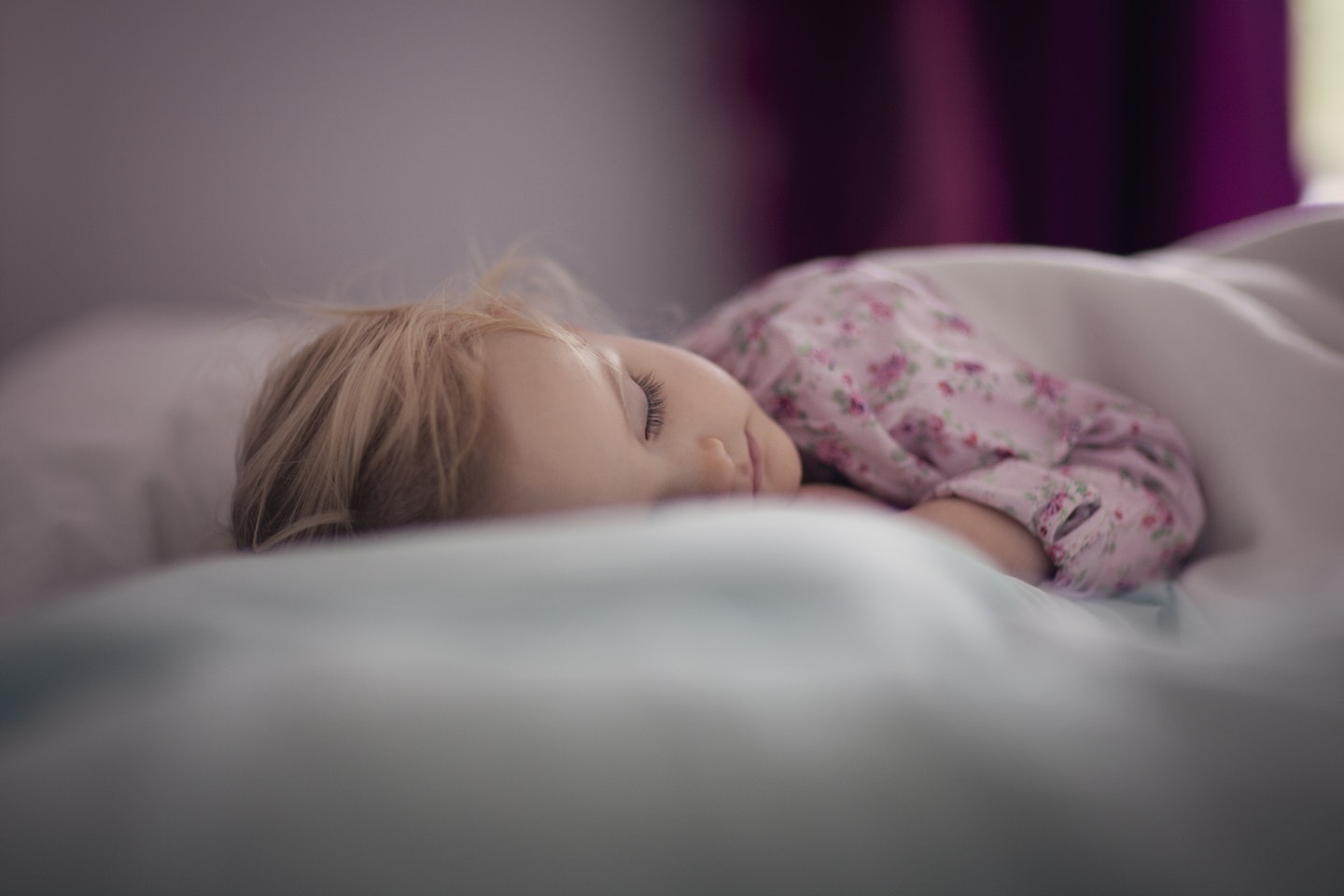
The future’s bright
While research into the effects of mindfulness on babies and toddlers in its infancy, Marneta points out that it can only be a good thing to begin this training while your baby’s brain is developing. Indeed, key aspects of mindfulness practice like focus are controlled by the prefrontal cortex. Connections in this area of the brain are created fastest during childhood. Thus, mindfulness has been linked to the childhood development of important skills like patience and emotion regulation.
In fact, in 2017 researchers carried out a study of 44 mums and their babies as they undertook an eight-week course in mindful parenting. Two months later, the mums reported a significant increase not only in their levels of mindfulness but in their self-compassion, overall wellbeing and confidence in their parenting ability. Their babies, meanwhile, were reported to have higher ‘positive affectivity’ (a scientific catch-all for qualities including enthusiasm, energy, confidence and alertness). The researchers hypothesised that this could be the result of mindfulness creating more empathetic, easy interactions between them and their little one.
Nor do the benefits end when he is a toddler. Korean primary school children have been found to be less aggressive and stressed if they practice meditation, while a 2015 study found that 10 and 11-year-olds who meditated had better working memory and even high scores in maths tests. So, start practising mindfulness now, and you’ll not only get more sleep tonight but also breathe easier about their future.
Try Monster Meditation
As a way to help your youngster combat stress and anxiety, meditation app Headspace and Sesame Street have teamed up to create ‘Monster Meditations,’ six animated shorts. Each short features animated versions of Sesame Street Muppets experiencing feelings of frustration, impatience, disappointment and more. Co-founder and former Buddhist monk, Andy Puddicombe then helps each monster learn various breathing and sensory activities and other mindfulness techniques to better manage relatable, everyday scenarios. You can watch more over on YouTube.
9 steps to mindfulness for kids
1. When your baby is tiny, your mindfulness practice can be as simple as this: dedicate three points in the day to stare lovingly into his eyes. Smile. You do this all the time already, we know. But in doing so, you’re modelling contentedness, focus and being in the moment – the most basic building blocks of mindfulness. How lovely is that?
2. Here’s one your toddler can practice too: ‘Squeeze your hands in a ball as tight as you can. See how tiny you can make them. Squeeze, squeeze, squeeze and relax,’ says Marneta.
3. During the day, toddlers can enjoy playing a game of ‘sleepy starfish’, suggests Marneta. ‘Lie down on the floor, and imagine you are a sleepy starfish. Stretch your arms and legs as wide as you can. Stretch and relax.’
4. To help a toddler calm down or drift off to sleep, Marneta recommends placing your thumb on the palm of their hand. ‘Then press very gently and circle slowly and lightly.’
5. To help little ones focus on and regulate their breathing, Marneta suggests placing one hand on your stomach and the other on your child’s. Ask your little one to do the same, then take a slow, deep breath together and feel your tummies rising and falling together. By breathing slowly yourself, you’re encouraging him to move away from the shallow, fast breathing patterns that lead to over-excitement and stress.
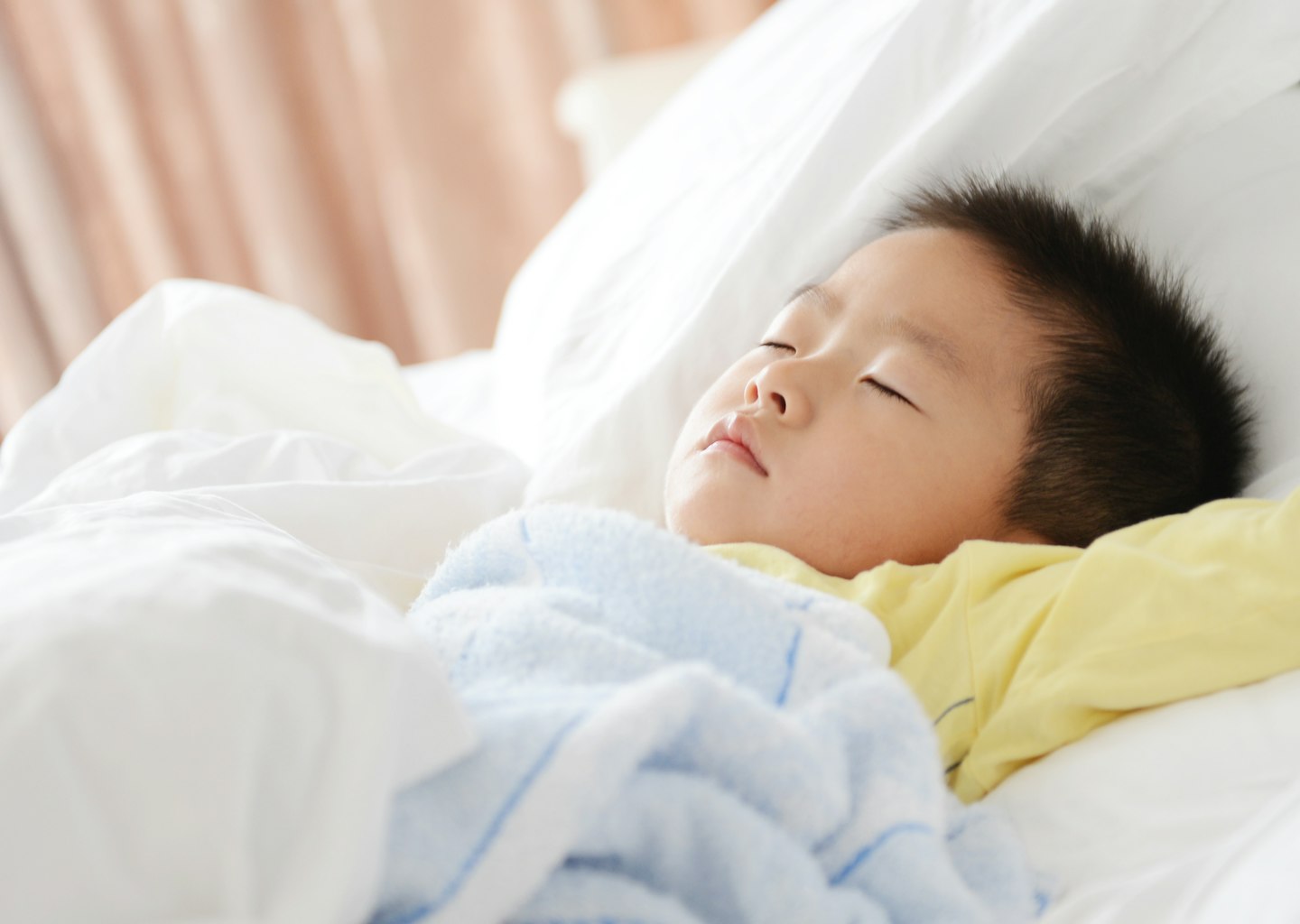
6. Another fun way to focus your little one’s attention on his breath is to ask him to lie down on his back with his favourite teddy on his stomach. ‘Ask him to stay as still as he can, and watch teddy move up and down as he breathes in and out,’ says Marneta. It encourages abdominal breathing – a basic principle of all mindfulness and meditation practices.
7. Bubbles can be a great tool for mum and baby mindfulness. ‘Imagine you are blowing bubbles of peace into the room,’ says Marneta. Take a deep breath… and calm.
8. Glad to be Dan is a charming children’s book that helps children identify difficult emotions and instead of ignoring them to use five different mindfulness exercises to work through them.
9. ‘Take a short mindful walk,’ suggests Marneta. ‘Feel the warmth of your baby in his sling or the softness of your toddler’s hand. Look up at the sky and be aware of your surroundings. Notice one thing you might normally have missed.’
Five mindfulness apps to try for your baby
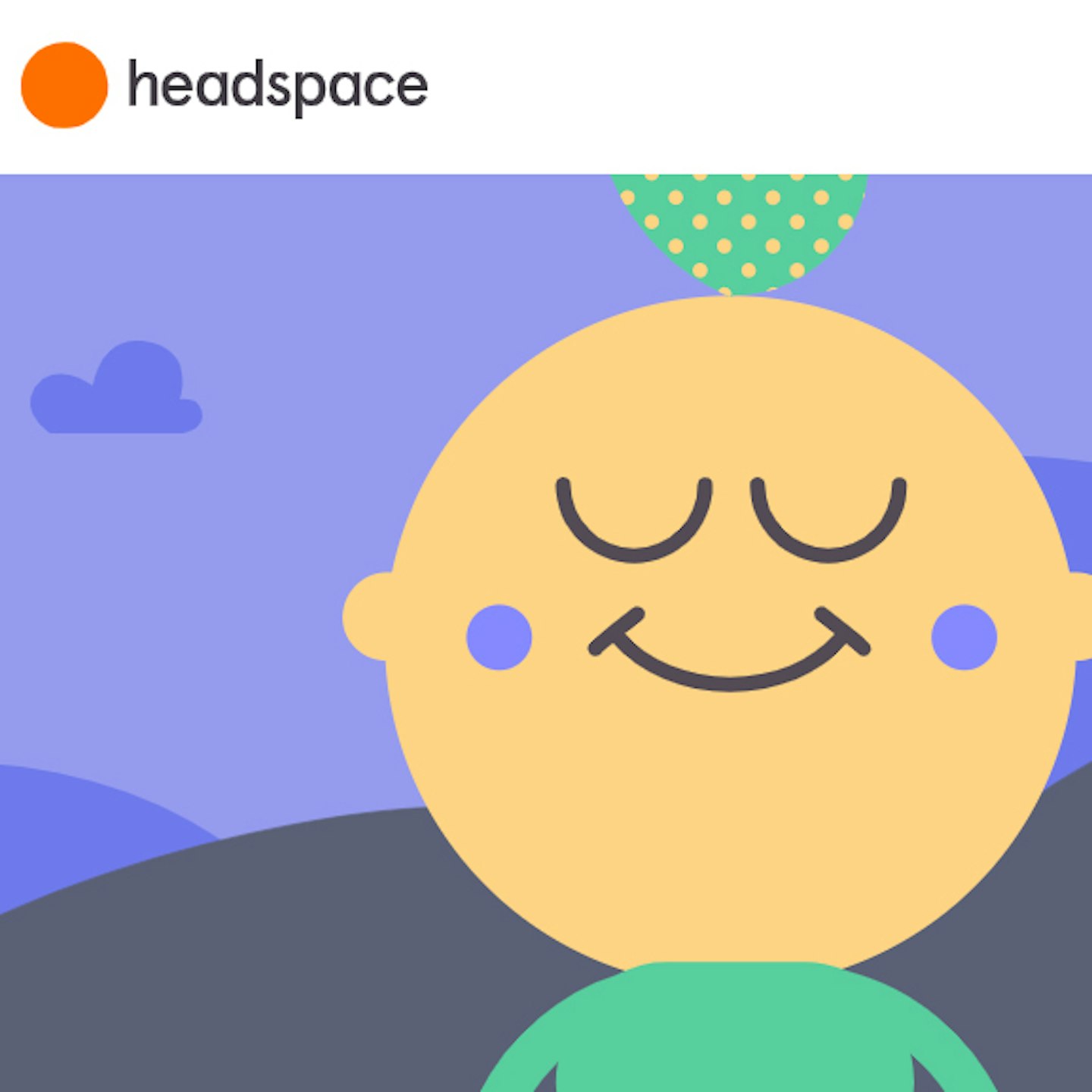
www.headspace.com
Many of us mums have already downloaded Headspace for our own 10 minutes of peace a day, and now there’s a kids’ version too. The experts behind the popular meditation app have created this children’s version because they know how important it is to teach little ones meditation from an early age. At the time of writing, there are five themes for children: Calm, Focus, Kindness, Sleep and Wake Up. The sessions have been customised for age ranges: five and under, six to eight, and nine to 12.
Free two-week trial, then £49.99 for a year.
2.
Smiling Mind
With meditations for all ages, for you and your child, families, in the classroom or at work, this app has a wide range of mindful moments to choose from. There are in-app purchases but you can download for free initially. The children’s meditations are broken down into age brackets, starting with 3-6 years. It’s Australia’s leading free meditation app, used by more than 5m people. Free to download.
With lots of characters to interact with children, this app offers meditations for calming, sleep, and relaxing. The cartoons overlay real moving videos, with gentle words and music. Free to download with in-app purchases.
4.
Calm
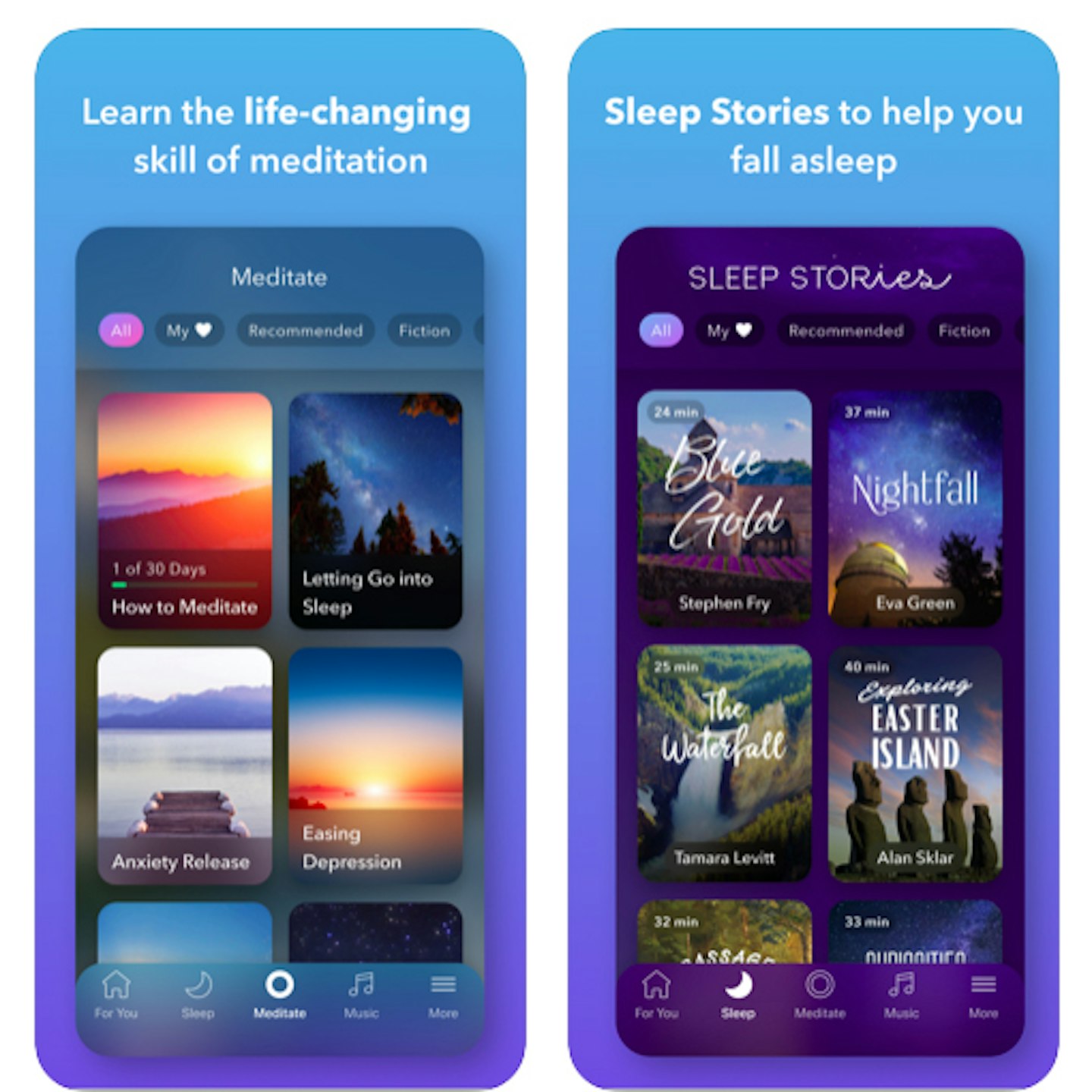
apps.apple.com
Aimed at reducing stress, this award-winning meditation app now has special meditations for children featuring Thomas the Tank Engine and friends. Free one-week trial, then £28.99 for a year.
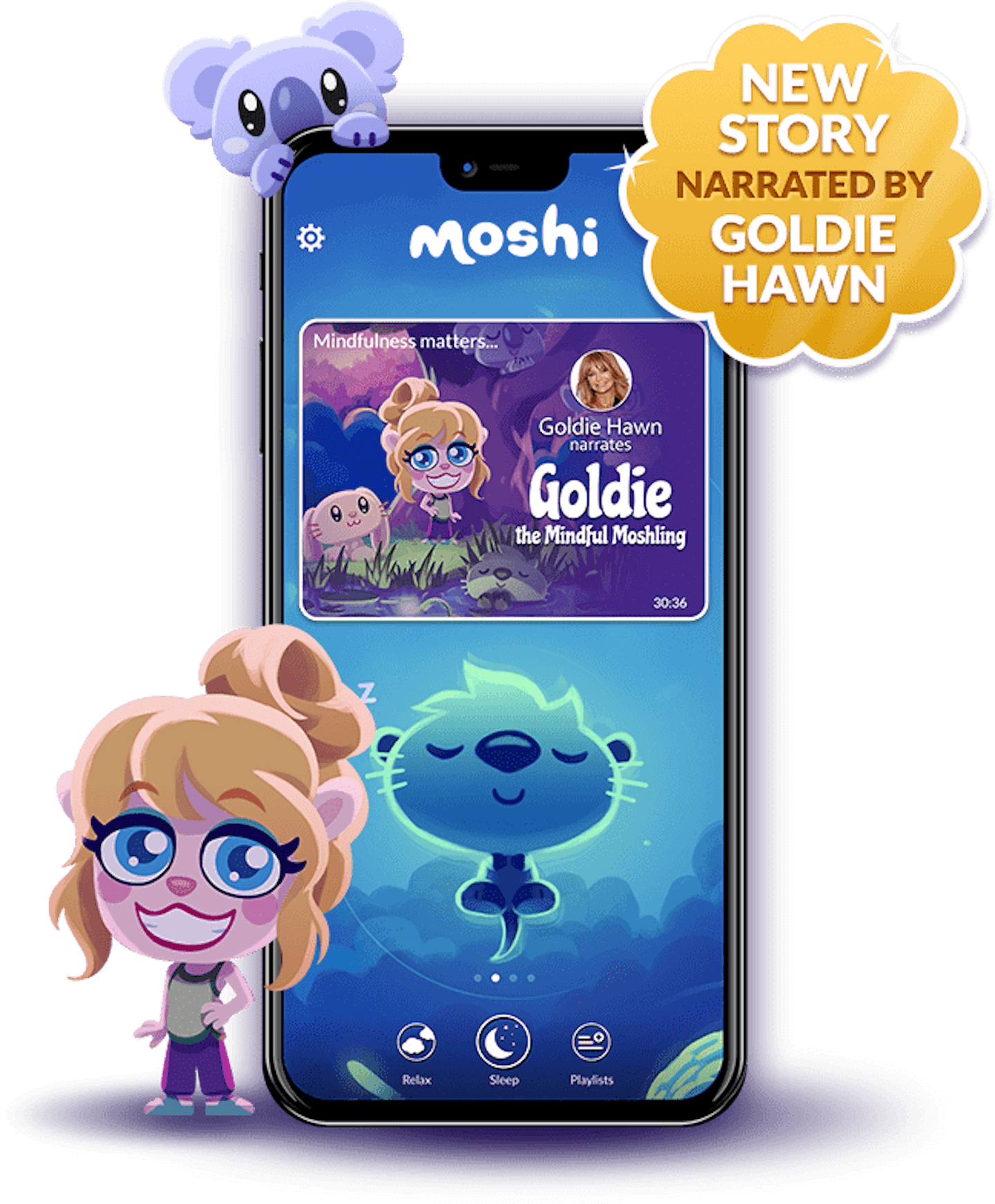
app.moshisleep.com
This award-winning app will help to quickly settle your child into a peaceful, restful sleep with over 45 hours of original audio Stories, Meditations, Music and Sounds. There are even special guest Moshi Stories narrated by stars of the stage and screen, including Goldie Hawn, Brian Blessed and Patrick Stewart. New content is released weekly so there will always be something new for your tot to enjoy at bedtime.
First week free and then £29.99 yearly.
